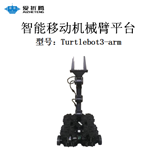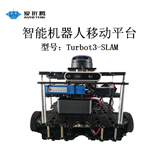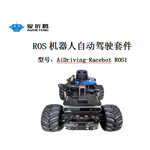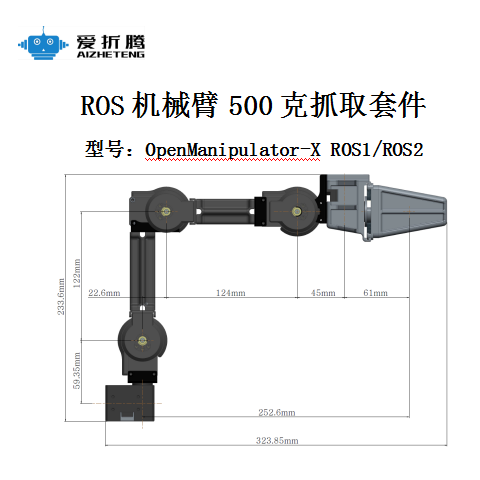ROS2入门教程-launch文件在ros1和ros2间的异同
ROS2入门教程-launch文件在ros1和ros2间的异同
说明:
- 介绍launch文件在ros1和ros2间的异同,便于从ros1向ros2移植
#####ros1和ros2都有的标签:
launch标签:
- ros1和ros2相同
node标签:
- 大部分与ros1相同
- ros2下差异:
- type 属性变为exec
- machine, respawn, respawn_delay, clear_params不再使用
- 例子:
<launch>
<node pkg="demo_nodes_cpp" exec="talker"/>
<node pkg="demo_nodes_cpp" exec="listener"/>
</launch>
param标签:
- 大部分与ros1相同
- 没有全局参数概念
- type, textfile, binfile, executable, command不再使用
- 例子:
<launch>
<node pkg="demo_nodes_cpp" exec="parameter_event">
<param name="foo" value="5"/>
</node>
</launch>
- 例子2:
<node pkg="my_package" exec="my_executable" name="my_node">
<!--A string parameter with value "1"-->
<param name="a_string" value="'1'"/>
<!--A integer parameter with value 1-->
<param name="an_int" value="1"/>
<!--A float parameter with value 1.0-->
<param name="a_float" value="1.0"/>
<!--A string parameter with value "asd"-->
<param name="another_string" value="asd"/>
<!--Another string parameter, with value "asd"-->
<param name="string_with_same_value_as_above" value="'asd'"/>
<!--Another string parameter, with value "'asd'"-->
<param name="quoted_string" value="\'asd\'"/>
<!--A list of strings, with value ["asd", "bsd", "csd"]-->
<param name="list_of_strings" value="asd, bsd, csd" value-sep=", "/>
<!--A list of ints, with value [1, 2, 3]-->
<param name="list_of_ints" value="1,2,3" value-sep=","/>
<!--Another list of strings, with value ["1", "2", "3"]-->
<param name="another_list_of_strings" value="'1';'2';'3'" value-sep=";"/>
<!--A list of strings using an strange separator, with value ["1", "2", "3"]-->
<param name="strange_separator" value="'1'//'2'//'3'" value-sep="//"/>
</node>
- 例子3:
- 参数嵌套
<node pkg="my_package" exec="my_executable" name="my_node" ns="/an_absoulute_ns">
<param name="group1">
<param name="group2">
<param name="my_param" value="1"/>
</param>
<param name="another_param" value="2"/>
</param>
</node>
- 或者
<node pkg="my_package" exec="my_executable" name="my_node" ns="/an_absoulute_ns">
<param name="group1.group2.my_param" value="1"/>
<param name="group1.another_param" value="2"/>
</node>
rosparam标签:
- 在ros1有效
- 在param中使用from来加载
- 例子:
<node pkg="my_package" exec="my_executable" name="my_node" ns="/an_absoulute_ns">
<param from="/path/to/file"/>
</node>
remap标签:
- 在ros1有效
- 只能在node中使用
- 例子:
<launch>
<node pkg="demo_nodes_cpp" exec="talker">
<remap from="chatter" to="my_topic"/>
</node>
<node pkg="demo_nodes_cpp" exec="listener">
<remap from="chatter" to="my_topic"/>
</node>
</launch>
include标签:
- 在ros1有效
- 需要在group中使用
- 不支持ns
- arg嵌套在include里面,if和unless标签不起效
- env不起效,使用set_env和unset_env替代
- clear_params 和pass_all_args 不支持
- 例子:
<group>
<include file="another_launch_file"/>
</group>
arg标签:
- value 用let替代
- doc 用description替代
- 嵌套include ,if和unless不起效
- 例子:
<launch>
<arg name="topic_name" default="chatter"/>
<node pkg="demo_nodes_cpp" exec="talker">
<remap from="chatter" to="$(var topic_name)"/>
</node>
<node pkg="demo_nodes_cpp" exec="listener">
<remap from="chatter" to="$(var topic_name)"/>
</node>
</launch>
env标签:
- env被set_env和unset_env替代
- env只用于嵌套node 和executable 标签下,不支持if和unless标签
- set_env 可以嵌套在launch和group 标签下
- 例子:
<launch>
<set_env name="MY_ENV_VAR" value="MY_VALUE" if="CONDITION_A"/>
<set_env name="ANOTHER_ENV_VAR" value="ANOTHER_VALUE" unless="CONDITION_B"/>
<set_env name="SOME_ENV_VAR" value="SOME_VALUE"/>
<node pkg="MY_PACKAGE" exec="MY_EXECUTABLE" name="MY_NODE">
<env name="NODE_ENV_VAR" value="SOME_VALUE"/>
</node>
<unset_env name="MY_ENV_VAR" if="CONDITION_A"/>
<node pkg="ANOTHER_PACKAGE" exec="ANOTHER_EXECUTABLE" name="ANOTHER_NODE"/>
<unset_env name="ANOTHER_ENV_VAR" unless="CONDITION_B"/>
<unset_env name="SOME_ENV_VAR"/>
</launch>
group标签:
- 没ns属性,查看新属性push-ros-namespace
- clear_params不起效
- 不能使用remap和param 作为下级标签
- 例子
<launch>
<arg name="use_time_prefix_in_talker" default="0"/>
<group>
<let name="launch-prefix" value="time" if="$(var use_time_prefix_in_talker)"/>
<node pkg="demo_nodes_cpp" exec="talker"/>
</group>
<node pkg="demo_nodes_cpp" exec="listener"/>
</launch>
machine标签:
- 未支持
test标签:
- 未支持
#####ros2新出现的标签:
set_env and unset_env标签:
push-ros-namespace标签:
- 例子:
<!-Other tags-->
<group>
<push-ros-namespace namespace="my_ns"/>
<!--Nodes here are namespaced with "my_ns".-->
<!--If there is an include action here, its nodes will also be namespaced.-->
<push-ros-namespace namespace="another_ns"/>
<!--Nodes here are namespaced with "another_ns/my_ns".-->
<push-ros-namespace namespace="/absolute_ns"/>
<!--Nodes here are namespaced with "/absolute_ns".-->
<!--The following node receives an absolute namespace, so it will ignore the others previously pushed.-->
<!--The full path of the node will be /asd/my_node.-->
<node pkg="my_pkg" exec="my_executable" name="my_node" ns="/asd"/>
</group>
<!--Nodes outside the group action won't be namespaced.-->
<!-Other tags-->
let标签:
- 与arg功能类似
- 例子
<let var="foo" value="asd"/>
executable标签:
- 例子
<executable cmd="ls -las" cwd="/var/log" name="my_exec" launch-prefix="something" output="screen" shell="true">
<env name="LD_LIBRARY" value="/lib/some.so"/>
</executable>
include标签
- 用途和ros1不一样
- 需要嵌套在group里
<group>
<include file="another_launch_file"/>
</group>
- 需要使用ns属性的话,可以这样
<group>
<push-ros-namespace namespace="my_ns"/>
<include file="another_launch_file"/>
</group>
获取最新文章: 扫一扫右上角的二维码加入“创客智造”公众号



















